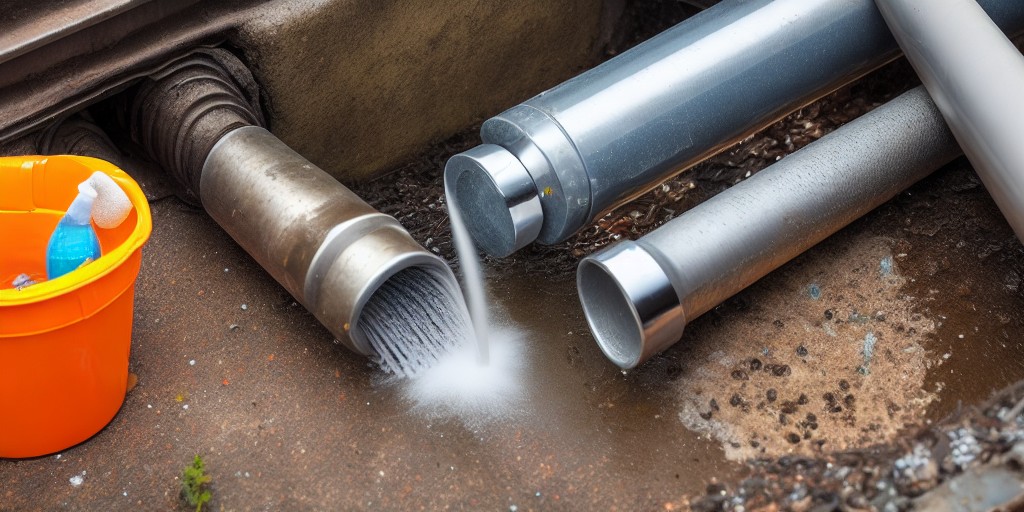Cleaning your home is essential to keep it healthy and safe. One of the most popular cleaning agents in households is Clorox. It is a powerful disinfectant that kills germs and viruses, making it an excellent choice for cleaning surfaces and floors. However, there is a common concern among homeowners that using Clorox can damage their pipes. In this article, I will explore this issue in detail and determine if Clorox can indeed damage pipes.
What is Clorox?
Clorox is a brand of household bleach that contains sodium hypochlorite as its active ingredient. It is used for a variety of cleaning purposes, including disinfecting surfaces, laundry, and whitening clothes. Clorox is a powerful oxidizing agent that breaks down organic materials such as bacteria, viruses, and mold.
How Does Clorox Work?
Clorox works by releasing chlorine molecules that react with water to form hypochlorous acid. This acid is a powerful oxidizing agent that breaks down the chemical bonds of organic compounds such as bacteria, viruses, and mold. The hypochlorous acid also reacts with the proteins in the cell membranes of these microorganisms, causing them to break down and die.
Can Clorox Damage Pipes?
The answer to this question depends on several factors, such as the type of pipes and the concentration of Clorox used. Let’s explore these factors in detail.
Types of Pipes used in households.
There are two main types of pipes used in households: metal and plastic. Metal pipes are made of materials such as copper, iron, and galvanized steel. Plastic pipes are made of materials such as PVC, CPVC, and PEX.
Effects of Clorox on Pipes
Metal pipes are generally resistant to Clorox, but they can be corroded by high concentrations of bleach. Chlorine can react with the metal, causing it to corrode and weaken over time. This can lead to leaks and pipe failure.
Plastic pipes are more susceptible to damage from Clorox than metal pipes. Chlorine can react with the plastic, causing it to become brittle and crack over time. This can also lead to leaks and pipe failure.
The concentration of Clorox used is also a factor. Using too much bleach can cause damage to pipes over time, regardless of the material. It is recommended to dilute Clorox with water before using it for cleaning purposes.
Alternatives to Clorox
If you are concerned about using Clorox to clean your pipes, there are several alternatives available. Some of these include:
Vinegar and baking soda: This natural cleaning solution is effective at removing buildup and odor from pipes.
Hydrogen peroxide: This disinfectant is less corrosive than Clorox and can be used for cleaning surfaces and floors.
Borax: This natural cleaner is effective at removing stains and odors from pipes.
Tips for Cleaning Pipes
Here are some tips to keep your pipes clean and healthy:
- Use a drain strainer to prevent hair and other debris from clogging your pipes.
2. Run hot water down your drains regularly to flush out buildup and prevent clogs.
3. Avoid pouring grease or oil down your drains, as they can solidify and cause clogs.
4. Use natural cleaning solutions such as vinegar and baking soda to remove buildup and odor from your pipes.
5. If you decide to use Clorox, dilute it with water and use it sparingly to avoid damaging your pipes.
Conclusion.
In conclusion, Clorox can potentially damage pipes, especially plastic pipes, if used in high concentrations or over a long period of time. It is important to dilute Clorox with water before using it for cleaning purposes and to use it sparingly. If you are concerned about using Clorox, there are several natural alternatives available that are effective at cleaning and disinfecting pipes.
FAQs on Can Clorox Damage Pipes?
Can Clorox damage copper pipes?
Clorox can corrode copper pipes if used in high concentrations or over a long period of time.
Can Clorox damage PVC pipes?
Yes, Clorox can damage PVC pipes if used in high concentrations or over a long period of time.
Is it safe to pour bleach down my drains?
It is safe to pour diluted bleach down your drains in small amounts for cleaning purposes. However, using too much bleach can damage your pipes.
How often should I clean my pipes?
It is recommended to clean your pipes every 3-6 months to prevent buildup and clogs.
Are natural cleaning solutions effective at cleaning pipes?
Yes, natural cleaning solutions such as vinegar and baking soda are effective at removing buildup and odor from pipes.




